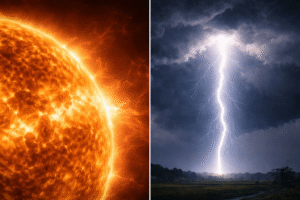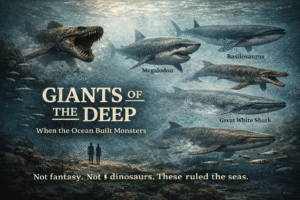Fun fact: Earth has survived five mass extinctions in its 4.5-billion-year history—and it’s still spinning.
For decades, we’ve been bombarded with slogans like “Save the Earth” and “Protect the Planet.” But here’s a provocative thought: the Earth doesn’t need saving—we do. The Earth has been through ice ages, asteroid collisions, and continental drift. It’s not going anywhere. But humans? That’s another story.
Let’s face it: climate action isn’t about rescuing the planet—it’s about securing a future where we, and generations after us, can breathe, eat, and thrive. It’s time to reframe climate action as self-preservation, not charity to a rock in space.
The Illusion of Heroism: Why “Saving the Earth” Misses the Point
When we speak about climate change in heroic terms—“fighting to save the planet”—we create distance. It feels noble, but also abstract. It makes the crisis feel like someone else’s problem, something far away and not quite urgent.
But climate change isn’t waiting. It’s not looming. It’s here.
Look at Delhi’s air in winter. Or the record-breaking heat in Rajasthan. Or the disappearing coastline of Kerala. These aren’t anomalies—they’re the new normal. Yet the language we use—”global warming,” “carbon footprint,” “net zero emissions”—often feels too sterile, too technical. It doesn’t hit home.
The Real Risk: Our Livelihoods, Our Lives
When climate change is viewed through a human lens, the stakes are much clearer.
Health
The World Health Organisation (WHO) estimates that climate change will cause approximately 250,000 additional deaths per year between 2030 and 2050 from heat stress, malnutrition, malaria, and diarrhoea. Rising temperatures aren’t just uncomfortable—they’re deadly.
Urban heat islands, like those in Mumbai and Hyderabad, trap heat in concrete jungles, raising temperatures by 3–5°C compared to nearby rural areas. For the elderly, children, and people with respiratory illnesses, this is life-threatening.

Food Security
Floods, droughts, and unpredictable seasons are disrupting agriculture. In India, unseasonal rain has already wiped out crops in Maharashtra and Punjab, driving farmer suicides and increasing rural distress.
According to the Indian Council of Agricultural Research (ICAR), wheat yields could decline by up to 6% for every 1°C increase in temperature. Think about that the next time you buy atta.
Water Scarcity
Rivers like the Ganges are glacier-fed, and those glaciers are melting. According to NITI Aayog’s Composite Water Management Index, more than 600 million people in India are currently experiencing high to extreme levels of water stress.
Cape Town almost ran out of water in 2018. Chennai did in 2019. We are not far behind.
Livelihoods
From coastal fishermen to mountain tourism operators, millions of Indians depend on ecosystems that are unravelling. Mangroves disappearing in the Sundarbans, coral bleaching in the Andamans—these aren’t just ecological losses; they’re economic catastrophes.
Nature Will Adapt—With or Without Us
Here’s a humbling truth: nature will rebalance itself. Maybe with fewer humans, maybe without us. The dinosaurs didn’t destroy Earth. They just couldn’t keep up with change.
If we vanished tomorrow, forests would reclaim our cities, oceans would detox, and animal populations would likely flourish. Earth would heal. But our fragile systems—hospitals, farms, cities, economies—would not survive.
That’s why climate action is not environmentalism. It’s survivalism.
From Fear to Action: Stories of Local Resilience
The Bishnoi Community (Rajasthan)
For over 500 years, the Bishnoi community has protected animals and trees as part of their spiritual duty. Long before “green living” became a trend, they were practicing sustainable coexistence.
In 1730, 363 Bishnois gave their lives to protect trees from being felled by the king’s men. This became the inspiration for the Chipko Movement centuries later.
Sikkim’s Organic Revolution
In 2016, Sikkim became the world’s first fully organic state. With zero chemical pesticides and fertilisers, they’ve proved that modern food systems can be reimagined. Yields have remained stable, soil health has improved, and tourism has boomed.
Araku Valley Coffee Project (Andhra Pradesh)
Tribal farmers in Araku Valley have revived degraded land using regenerative farming practices. Supported by the Naandi Foundation (a non-profit working on sustainable development), they’ve built a model of agriculture that works for both people and the planet—producing world-class coffee while restoring forests.
So, What Can You Actually Do?
Climate action sounds intimidating, but it starts with reframing the narrative from planet-centric to people-centric.
Here’s how you can get involved:
- Talk Human, Not Jargon
Replace “net zero” with “clean air for my child.” Say “fresh water” instead of “hydrological stability.” Make it personal.
- Change the Lens on Sustainability
Don’t ask, “Is this good for the Earth?” Ask, “Is this good for my family’s future?”
- Vote with Your Wallet
Support local produce, reduce meat consumption, and ditch single-use plastics. Every rupee you spend is a vote for the kind of world you want.
- Demand Better Policy
Push for climate action not just through lifestyle but through civic engagement. Demand clean energy investment, better urban planning, and environmental justice.
- Reconnect with Nature
Whether it’s growing herbs on a balcony or taking a walk in your neighborhood park—rebuilding a relationship with nature rebuilds your reasons to protect it.

The Conclusion: Rewriting the Story
We don’t need saviours. We need storytellers.
We must stop framing Earth as a helpless victim and start seeing ourselves as species on the edge of a self-inflicted extinction. The Earth is not in danger—we are.
So the next time you see a climate poster, ask yourself—not “How can I save the planet?” but “How can I save myself, my children, and my community?”
Author’s Note
We often talk about climate change in terms of polar bears and melting glaciers. But the truth is, this fight is right here, right now. It’s about asthma in Delhi, floods in Assam, and the food on your plate. I hope this piece nudges you to shift the lens—and act with urgency and heart.
G.C., Ecosociosphere contributor.
References and Further Reading
- IPCC Sixth Assessment Report – Climate Change 2023
- India’s State of the Environment 2022 – CSE
- Climate of sickness. https://www.thenews.com.pk/print/1215346-climate-of-sickness




